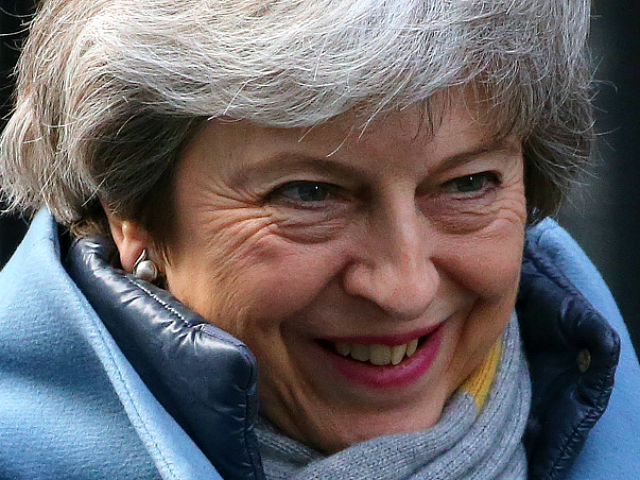Theresa May has managed to pass a motion in favour of extending Article 50 negotiations with the European Union, which would delay Brexit beyond March 29th — something she repeatedly promised she would not do.
After her own proposed deal with the European Union was rejected by the House of Commons in a so-called “meaningful vote” for a second time, the Prime Minister did not tell MPs the country would therefore leave the bloc on March 29th as scheduled in the European Union (Withdrawal) Act, but instead put a Government motion to the House in favour of extending negotiations.
Mrs May allowed a free vote on the motion, with 188 of her own MPs, including the Secretary of State for Brexit, deciding against it, along with the Democratic Unionist Party (DUP) MPs from Northern Ireland on whom her minority government relies for a parliamentary majority.
Only 112 Tory MPs backed the motion — but, thanks to anti-Brexit, left-liberal opposition MPs siding with the Prime Minister in large numbers, it passed anyway.
This incredible state of affairs has come to pass despite the Prime Minister having repeatedly promised that Article 50 would not be extended and that Brexit would be delivered “on time” — in line with her now long-abandoned mantra that “no deal is better than a bad deal”.
On January 11th this year, Mrs May ruled out an extension via her official spokesman in response to remarks by the Foreign and Commonwealth Secretary that Brexit might not happen if her deal was blocked, in an effort to assuage the concerns of Brexiteer MPs and voters that she would not deliver on 2016 referendum result as she promised before she became Prime Minister and in her 2017 election manifesto.
On December 11th 2018 the assistant editor and chief political correspondent at The Telegraph, Christopher Hope, reported that the Prime Minister was “clear on Article 50 — it will NOT be extended beyond 29 March [2019].
Hope quoted Mrs May’s official spokesman as saying “The PM has been clear on a number of occasions she has no intention of extending Article 50. The Prime Minister is not going to extend Article 50.”
In fact, Leave.EU, the larger of the two major Brexit campaign groups during the EU referendum in 2016, was able to find so many examples of the Prime Minister promising that Article 50 would not be extended and/or that Brexit would be delivered on time on March 29th 2019, very often from the despatch box in the House of Commons, that it was able to compile a lengthy video montage of her doing so:
The Prime Minister apparently breaking her word by attempting to extend Article 50 — she will require the EU’s agreement to actually do so — will leave many wondering whether they can trust her other promises; for example her vow to stand aside as party leader before the next general election, made in exchange for Tory MPs not backing her ouster in a vote of no confidence in December.

COMMENTS
Please let us know if you're having issues with commenting.